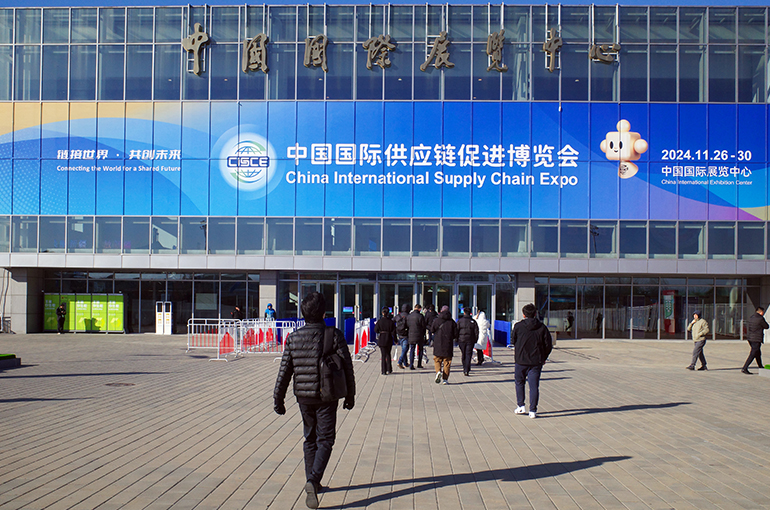 Global Supply Chain Connectivity Remains High, Chinese Report Says
Global Supply Chain Connectivity Remains High, Chinese Report Says(Yicai) Dec. 2 -- China has unveiled the world's first indices to measure the degree of connection within global supply chains and quantitatively evaluate supply chain facilitation in a new report, with connectivity remaining near historic highs last year.
The Global Supply Chain Connectivity Index surged to 0.732 last year from 0.271 in 2014 but was down from a record high of 0.733 in 2022, according to the 2024 Global Supply Chain Promotion report, released by the China Council for the Promotion of International Trade at the second China International Supply Chain Expo held in Beijing from Nov. 26 to 30.
The connectivity index stayed high mainly thanks to enhanced internal connections within supply chains and favorable developments in the broader business environment, the report showed.
Despite external shocks, including the Covid-19 pandemic, natural disasters, and geopolitical conflicts, the negative impacts on global supply chain connectivity and development have been short-term and limited, said Zhao Ping, director of the CCPIT. The global supply chain's increasing connectivity is irreversible, with economic globalization remaining a widely supported direction, she added.
The Global Supply Chain Promotion Index rose to 0.66 last year from 0.27 in 2018, thanks to advancements in infrastructure connectivity, technological innovation, and trade and economic rules. However, the policies of major economies and the provision of financial services have had some negative impacts.
In addition, the report outlined five key trends shaping global supply chains: communication and financial infrastructure development are moving toward a balance of efficiency and security, showing increased resilience; new multilateral trade and economic rules are exploring the creation of new regulation areas; major economies are emphasizing the localization of key raw material supplies; enhanced monitoring and early-warning systems for supply chain risks; and the rapid emergence of new technologies, which are optimizing and expanding financial services to ensure the stable operation of global supply chains.
Editor: Martin Kadiev